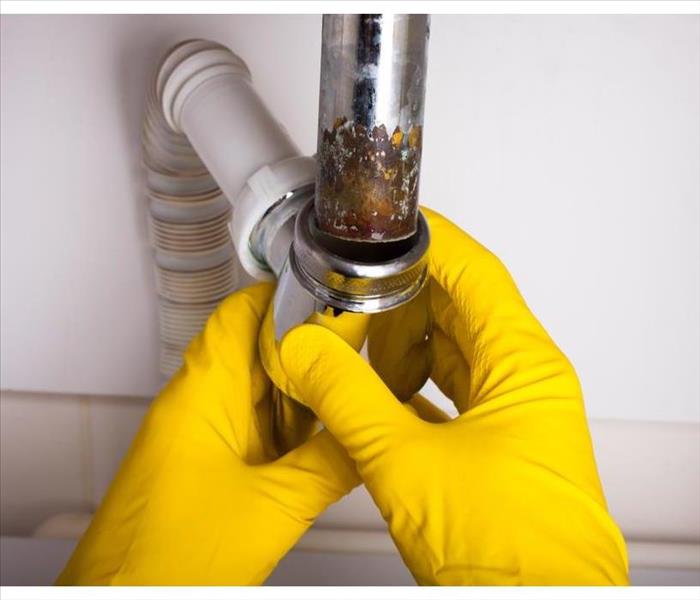Chemical Caution: How To Clean Your Drains Safely
12/18/2018 (Permalink)
It is reasonable to expect that the water in your sink, toilet or bathtub will flow down the drains in your home in Newtown, PA, unencumbered by gunk. Occasionally, however, a clogged drain may happen. When it does, think twice before you react for the chemical drain cleaner. Most of the liquids designed to unclog pipes can have just as many drawbacks as benefits.
How They Work
Drain cleaners clear clogs by producing heat. Through an electron-transfer process, they use the warmth created to obliterate the clog. This is not a problem as long as it works quickly. Often, however, the heat will not be enough to get rid of what’s causing the blockage, so it stays in the pipe where it can cause several problems:
- Softening plastic pipes
- Cracking old metal pipes
- Compromising the integrity of the system joints
If the cleaner simply moves the blockage further down the clogged drain, this can actually make the problem worse over time. The clog can get so bad you end up needing sewage cleaning professionals to mitigate the mess it makes.
What Works Better
A chemical drain cleaner should always be your last resort, and as such, you may never have to use it. You have a couple of options that not only work better but also are less likely to damage your plumbing. An auger can be used to break up a clog mechanically. No chemicals are needed in conjunction with this tool. If the clog seems too deep for the auger to reach, an enzymatic cleaner may be helpful. Rather than producing heat, these cleaners contain enzymes that eat through the material causing the clog and leave your pipes alone. Finally, you can always call your local plumber to take care of your drains in a safe, efficient manner.
If you have a clogged drain, it is best to stay away from chemical drain cleaners. There are safer solutions that are still effective.




 24/7 Emergency Service
24/7 Emergency Service
